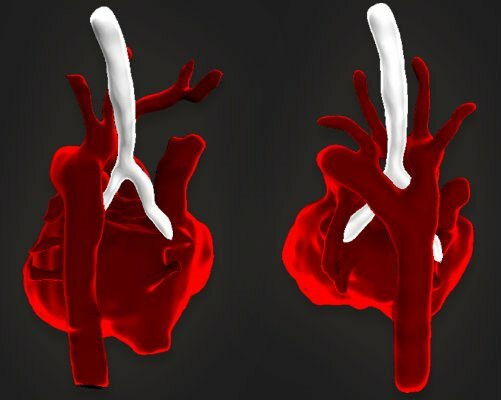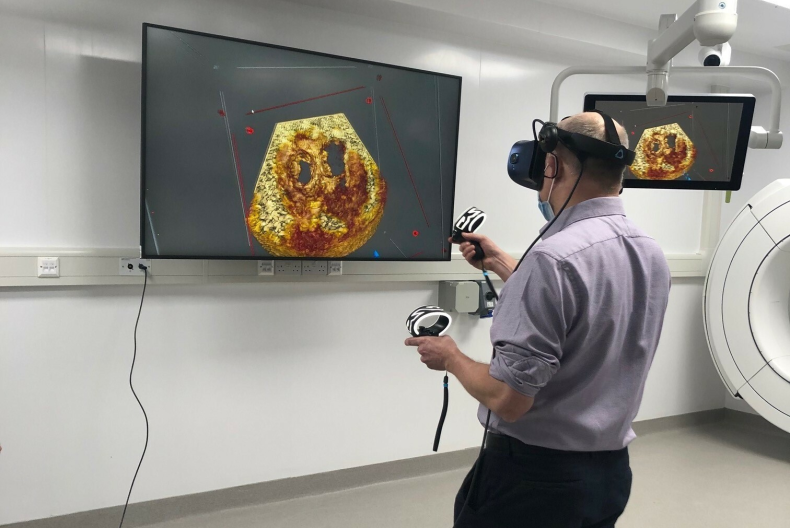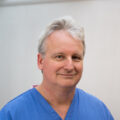Our paediatric cardiology specialists at Royal Brompton and Evelina London Children’s hospitals have a long history of pioneering innovative heart diagnostics and procedures, treating patients from before birth and into adulthood.
Paediatric cardiology requires a total-body approach to care
Children may experience a range of heart problems, either from birth or as they develop.
Some common heart concerns like heart murmurs may not require any treatment and resolve themselves over time as the heart grows and develops. They are often managed locally with a family GP and only referred to a specialist paediatric cardiologist if it is thought to be a structural problem with the heart.
Other heart problems like congenital heart disease (present from birth), acquired paediatric heart disease (develops after birth) and arrhythmias (heart rhythm disturbances) can be more complex to treat and affect multiple organs.
For example, 1 in 4 children with congenital heart disease also have a problem with another organ or system in their body. They can require additional specialist support in areas such as gastroenterology, nephrology and neurology.
With these complex heart conditions, a specialist multidisciplinary paediatric centre like Evelina London Children’s Hospital can offer the best support with its total-body approach to care.
Pushing boundaries in diagnostic imaging
“Congenital heart diseases cause structural problems with the heart that can require surgical intervention soon after birth, often within the first week of life,” explains Dr Owen Miller, our consultant in paediatric and fetal cardiology at Evelina London Children’s Hospital.
“It is therefore important to precisely diagnose the type of congenital heart disease in the unborn baby during pregnancy to ensure we can prepare for surgery soon after delivery and achieve the best outcomes.”
Evelina London Children’s Hospital has the largest and longest established fetal cardiac service in the UK, overseeing 2,000 pregnancies a year for the diagnosis of congenital heart disease.
With the close academic partnership between Evelina London scientists and the biomedical engineering department at King’s College London, it is at the forefront of research into fetal and paediatric cardiac diagnostic imaging.
Through this partnership, the team have jointly developed a world-first method to conduct 3D MRI scans that improves the ability to diagnose congenital heart disease in babies while still in the womb. This builds on the team’s work conducting the world’s first ever fetal cardiac MRI scan.

A 3D MRI scan of a fetal heart
This feat was achieved with novel computing technology that corrects for movement in tiny, fast-moving unborn babies which otherwise makes diagnosis hard with ultrasound methods paediatric cardiologists at other centres are limited to.
Procedures to correct structural problems in the heart can be complex, particularly with the small hearts of children and babies. Our scientists have also developed virtual reality technology to enable our cardiac surgeons to immerse themselves into a 3D image of a patients’ heart to help plan surgery and ensure the best outcomes.

Our cardiac surgeons use virtual reality technology to review a patient’s heart before surgery.
By using the latest high-resolution ultrasound scanners at our fetal cardiology unit, our paediatric cardiologists can detect heart defects sooner in unborn babies as early as 12 weeks into a pregnancy, instead of the routine 20-week scan.
As specialist maternity services are available on site, babies with heart defects detected before birth can be safely delivered, transferred to surgery soon after birth and receive all their follow-up and multidisciplinary care in one location.
A history of world-first heart procedures
Both Royal Brompton and Evelina London Children’s hospitals have a long history of pioneering heart procedures that improve the health of patients with congenital heart disease.
Between our hospitals, we have performed many world-firsts, including the first:
- autograft aortic valve replacement (Ross operation)
- fetal cardiac intervention
- MRI-guided cardiac catheter procedure
- PEARS procedure
- radiofrequency perforation of pulmonary valve
- Ross-PEARS combined procedure
We also have world-renowned expertise in transcatheter interventions, including:
- closure of complex atrial septal defects
- closure of patent ductus arteriosus
- closure of peri-membranous ventricular septal defect
- closure of sinus venosus defects implantation of the venus p valve in the pulmonary position
“With our combined expertise in cardiac surgery and imaging across Royal Brompton and Evelina London Children’s hospitals, we offer procedures that treat the most complex forms of congenital heart disease from before birth and through to adulthood,” says Mr Caner Salih, chief of cardiac surgery at our hospitals.
Mr Salih is one of the few UK surgeons performing the Nikaidoh and double root translocation procedures for complex conotruncal anomalies. He has also led our hospitals in achieving outstanding outcomes in all aspects of paediatric cardiac surgery, including the Norwood open-heart operation for hypoplastic left heart syndrome.
In addition to surgical procedures to treat structural problems of the heart, our consultant cardiologists and electrophysiologists are experts in minimally invasive procedures to correct heart rhythm disturbances, including cardiac ablation.
Personalised life-long care for every patient
“Treatments for congenital heart disease have improved greatly in recent decades as we continue to advance care. Recent data suggest that over 97% of children born with congenital heart disease now survive into adulthood, which is a tremendous achievement,” says Professor Alain Fraisse, consultant paediatric cardiologist at Royal Brompton Hospital.
“However, this presents challenges as some adults with congenital heart disease have complex health needs and require life-long specialist monitoring and care. As the largest centre for congenital heart disease in the UK, we have the expertise to treat every cardiac eventuality.”
Following a successful pilot in 2020, both our adult hospital sites (Royal Brompton and St Thomas’ Hospital) now offer a one-stop adult congenital heart disease (ACHD) service where patients can receive all their routine monitoring diagnostic tests and see their consultant cardiologist and specialist cardiology nurse all on the same day.
“Our ACHD service greatly improves the care offered to our patients. Rather than waiting for multiple diagnostic tests that are sometimes arranged months apart on the NHS, they receive a convenient one-day service designed around them with minimal impact to their routine,” explains Professor Michael Gatzoulis, consultant cardiologist and clinical and academic lead for adult congenital heart disease at Royal Brompton Hospital, who led the development of the service.
Professor Fraisse and Professor Gatzoulis lecture at Imperial College London, and Dr Miller is part of the academic team at Kings College London ensuring paediatric cardiology services across our hospitals benefit from the cutting-edge research at two of the world’s top universities.
A paediatric cardiology case like no other
Dr Owen Miller (right) with baby Abdulrahman, consultant obstetrician Mr Dharmintra Pasupathy and respiratory consultant Dr Jane Heraghty.
Our international paediatric patient Abdulrahman from Kuwait was nicknamed ‘the little survivor’ by our team at Evelina London, as his fight for life began before he was even born.
He was diagnosed with the rare congenital heart disease hypoplastic left heart syndrome by Dr Miller while still in his mother’s womb, which would require surgical intervention soon after birth.
After his delivery at St Thomas’ hospital, Mr Salih conducted surgical procedures – including the complex Norwood procedure – to treat his heart condition.
However, soon after surgery and while in our paediatric intensive care unit, he was starting to get very unwell and not putting on the weight he should.
After conducting a range of tests on his lungs, our paediatric respiratory specialists discovered he had primary ciliary dyskinesia, an extremely rare lung condition that prevents his lungs from effectively clearing mucus in its linings, among other organ complications.
The combination of these rare conditions in one patient is believed to be the first in the UK.
Thankfully, with our comprehensive multidisciplinary expertise on one site at Evelina London Children’s Hospital across cardiology, surgery, respiratory and intensive care, Abdulrahman’s condition improved, and he was able to make it home to his loving family where he continued his treatment.
Abdulrahman will need continued monitoring and likely further surgery on his heart at our hospitals in future but will be in the safest hands with our consultants.
Mr Caner Salih with baby Abdulrahman and his father.
Contact us
For more information or to book an appointment, please contact our customer care team.



